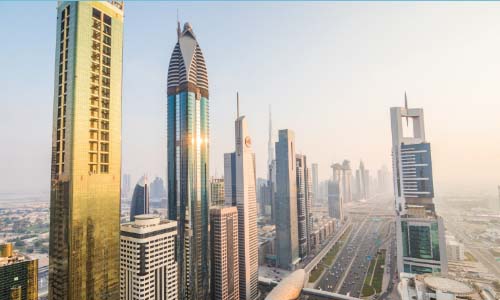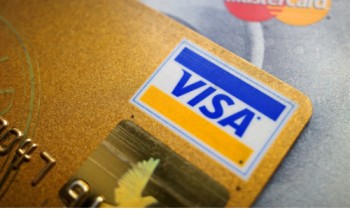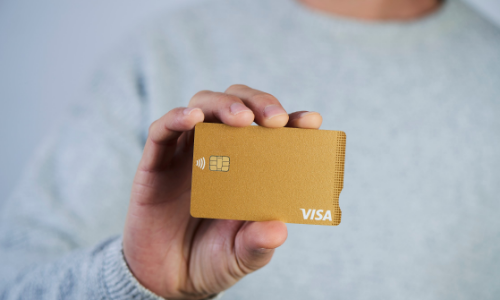Investment for Expats in the UAE - An Overview
Invest smart today for a better tomorrow
Best Investment Plans in UAE
Some of the best Investment quotes in UAE & Dubai are:
In the year 2018, the second-largest economy of the Gulf received an FDI (foreign direct investment) of $10.3 billion, majorly in trading activities, manufacturing, insurance, finance, and real estate.
Investment in UAE has been growing, that too with an increasing range of classes of the asset for the expats to select from in order to build their wealth. From investment in real estate to the trading of stocks, private pension schemes, deposit, and funds accounts, there are various investment options for suiting pretty much every risk profile.
And this is not just limited to the most commercialized Emirate of the UAE, where it all takes place. The other Emirates including Sharjah, Ras Al Khaimah, and Abu Dhabi are also a part of this investment party.
There a whole lot of reasons for making an investment in the UAE. Gas and oil may still copiously flow from the deserts of the UAE. However, the local economy has been more open to business lately.
The Climate of Investment Within the UAE
The financial experts view the climate of investment in the UAE to be positive. Research states that the broad-based economic expansion of the company is the consequence of the efforts put for strengthening the business climate and fostering the emergence of the diversified private sector.
For those who are investing in the UAE, particularly the strong rule of law is the key criterion. In fact, UAE is amongst the easiest places in the world for doing business. The process of obtaining a license for starting a local business for trading domestically or internationally is fast as well as simple. Some of the structures can be set up with up to 100% foreign ownership.
The non-residents and expats can trade on the UAE Stock Exchange with minimum documentation, while there are various foreign investors who reap the advantages and profits of the vibrant real estate market of the country. Mutual funds, private pension schemes, and other asset classes are also most sought after investing options in the Emirates.
Probably the attractive part for many investors is the fact that the Emirates is an oasis of financial, political, and economic calm. The ambitious development objectives of the government for the country provides a degree of certainty for the markets and investors. Consequently, various non-residents and expats are comfortable in investing here.
Investment in Terms of Pensions in the UAE
A recent survey revealed that around 1/3rd of the expats living in the UAE expect their retirement age to be 55 years, and around half of them expect it to be 60 years. However, not even half of them have savings for their retirement.
Currently, the expats who work in the Emirates get an end-of-service gratuity payment from their companies. This gratuity is calculated on the last drawn basic salary and the number of years of service in the company.
But the UAE government has proposed a new voluntary pension plan recently. According to this plan, the end-of-service contributions of the employees are collected from their employers and the amount is invested on the behalf of the employee. The people who participate in this scheme can contribute a higher amount monthly if they want to.
Some of the expats in the UAE have chosen to put their money in private pension plans. If you want to invest in a private scheme then here are a few things you must consider.
- The amount you must save to retire at that age.
- The place of retirement.
- The time of retirement.
- The kind of lifestyle you want after retirement.
- The effect of inheritance law on your retirement plans.
- The expenses that may come your way.

Investments through Savings Account in the UAE
The local banks in the UAE serve the expats well and offer them a wide range of sharia-compliant and conventional savings & deposits accounts, some of them with decent rates of return.
For example- ADIB pays quarterly “profits” (Sharia equivalent of a rate of interest) to the accountholders and First Abu Dhabi Banks offers an annual return of 4% on a minimum balance of AED 10,000.
The banks in the UAE also offer non-Islamic and Islamic deposit accounts. You must look around and compare accounts and deposits at different banks to find the one that suits your requirements and investment objectives the best.
Investments of Property in the UAE
The property is considered to be a popular class of assets in the UAE, which has been on the wishlist of foreign investors for around 2 decades. This earn-or-lose, make-money-quickly-if-you-can market has offered amazing profits and unexpected losses for years.
However, after strict regulations by the government, this uncertain market is not open for all the investors. These regulations have limited property speculation. Consequently, the market has become comparatively more stable and economical.
In order to stabilize the property market in the country, even more, the government introduced a retirement visa and issued a long-term “golden card” residents permits for the investors. The government also imposed new laws on the freehold ownership for the expats purchasing villas, apartments, as well as, lands in Abu Dhabi.
Investments related to Business in the UAE
The non-resident foreigners and expats can start a company in the UAE with 100% ownership (which means no need for a local partner) in a free zone. This area is considered to be designated where restrictions or taxes are not applied in the same manner as they are done on a mainland.
A free zone company in the UAE is usually easier to start and get licensed. The expats also have the option of setting up an onshore company. Since such an entity requires a citizen of the UAE to have a share of 51%, the cost involved in setting up and running it is generally higher.
If you are a foreign investor, you will have to contact the DED (Department of Economic Development) in the Emirate where you wish to start your business. The initial approval for the business will be given by the DED, and then you can get the trade name registered.
Keep in mind that the cost involved in starting a business in the Emirates is based on the kind of activity, entity, and license needed. For example, capital needs may vary depending on the type of business.

Investments in Shares and Stocks in the UAE
Investment in UAE stock market is kind of straight forward. The individuals should open a trading account with a broker who is registered with a stock exchange either in Abu Dhabi or Dubai. There are 3 exchanges in the UAE- ADX (Abu Dhabi Securities Exchange), NASDAQ Dubai, and DFM (Dubai Financial Market).
The investors should also get an Investor Number, which is available from the Investor Services Desk directly at the stock exchanges, to trade on ADX and DFM.
Whenever you plan to invest in stocks, you should research well about the sector, company, market fundamentals, and economic indicators. You can consider contacting a fund manager. And most importantly, stay aware of your risk appetite while investing.
Taxation System for Investments in the UAE
In the UAE, there is nothing like income tax. The government does not even charge tax on capital gains at the time of disposal of securities or real estate by an individual. The tax on rental income is valued at 5% except in the Emirate of Abu Dhabi. No municipal tax is charged on rental premises in Abu Dhabi, but the landlords should pay license fees.
How to Invest in the UAE Smartly?
UAE has a lot of options when it comes to investing your savings and incomes. You can shop around and probably get in touch with a financial planner or a consultant who can help you with your current financial condition.
This involves factors like time horizons and goals. It will help you in making the best possible decisions for your investment portfolio.
Remember that investment in UAE can be different than other countries. Therefore, you should decide your goals and expectations accordingly. Research well and have a thorough understanding of the market before taking any steps.
What factor should I Consider before Investing in the UAE?
Here is a list of factors that you must consider before making an investment in UAE.
- How mature is the financial system?
- What is the condition of the currency?
- What are the investment options available in the UAE for expats?
- Is the political status of the company stable?
- How is the UAE economy affected by the regional geopolitical condition?
- Are there any incentives available for attracting the foreign investments such as subsidies or loans?
- What is the level of protection that the foreign investors are offered in the Emirates?
- How steady are the rules and regulations regarding foreign investments in the Emirates?
The summary is that you need to your homework (read research) before making an investment in UAE. You can get in touch with people on the ground who would be able to give you unbiased and accurate advice.
More From Investment
- Recent Articles
- Popular Articles




















